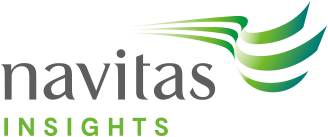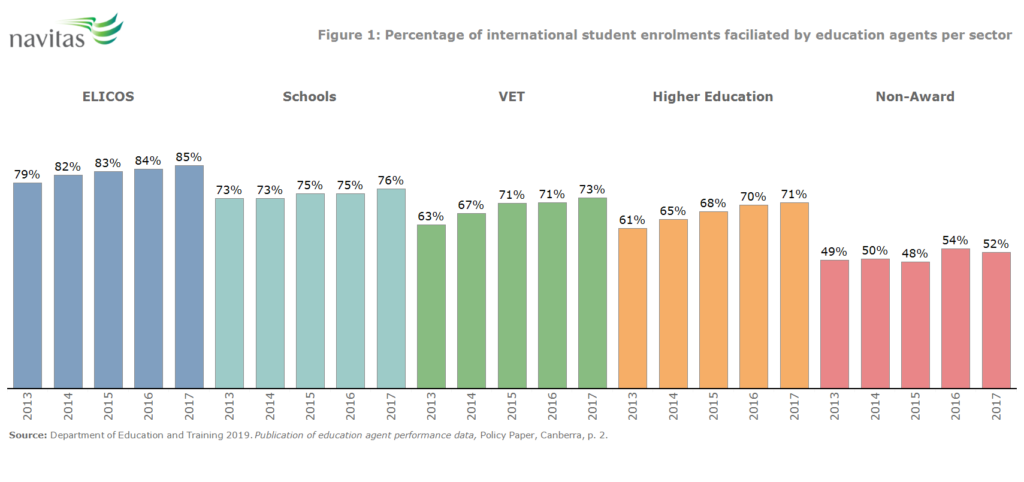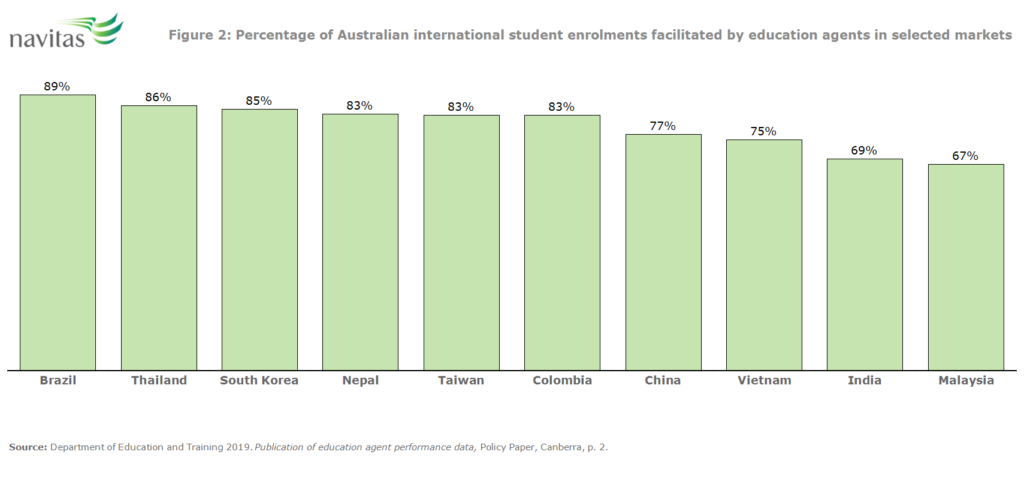
The value of good advice
In 2017, almost three in four of the 624,000 international students arriving in Australia for study relied on the support of an education agent to get here. Making a decision to study overseas also means navigating the complexities of visa requirements, language barriers, study qualifications and work rights – and with rules constantly changing, the role of education agent has become increasingly important.
It’s a high value decision with life-changing implications. So it’s not surprising that students and their parents need expert advice (often in their native language) on where to study, what to study, how to choose the right program – and how to make sure their visa is processed on time.
Yet until recently, students and education providers had very little access to data that allowed them to assess the quality of that advice, or the performance of their chosen agent.
The growing need for advice
The use of education agents for study in Australia has grown nine percentage points since 2013 to 74% of international students. This growth is evident across all sectors, with ELICOS showing the greatest dependency at 85% of students, and higher education up 10 ten percentage points to 71% in 2017.
It’s also a popular channel in Australia’s most important student markets, especially where English is a second language. 89% of international students from Brazil use an education agent, compared with 67% from Malaysia.
While the guidance provided to prospective student by education agents is usually exemplary, there are isolated cases of dishonest or fraudulent behaviour. This in turn creates reputational and quality risks for the international education sector as a whole.
That’s why in recent years, the Australian Government has implemented a range of measures to improve transparency amongst international education agents.
Benchmarking agent performance
As part of several reforms to the quality assurance framework for Australia’s international education sector, agent performance data now needs to be published.
When Australia’s Department of Education and Training (DET) called for views on how it could best implement this legislated requirement, it emphasised three key benefits:
- Providers will be able to benchmark and compare adviser performance, supporting better choices about the education advisers they engage
- Education agents will be incentivised to improve and maintain recruitment practice and performance
- Students will have access to better data on individual education agents, so they can also make a more informed choice of adviser.[1]
As a provider that values and depends on its agent partnerships, Navitas supports the publication of robust education adviser performance data.
Good data breeds good decision making
The student experience often begins with their first meeting with an agent in their home country. Throughout their journey, the student’s experience is our paramount concern and we would use this data to continue to improve the quality of our student services at every stage.
Detailed adviser performance data also adds transparency and accountability to provider-adviser relationships, resulting in mutually beneficial outcomes.
In our submission to DET, Navitas explored three ways that this data could help build better relationships with education advisers and students.
- Identifying best practice
By benchmarking adviser performance data we can identify the best agents to work with. This allows us to answer questions such as:
- Which advisers consistently deliver highest quality students?
- Which advisers perform best in specific regions?
- How are our advisers performing, compared with other providers?
With appropriate metrics, we can then undertake detailed analysis to understand why some agents perform better than others, and provide feedback on the evolving relationships with all our advisers.
- Adviser services procurement
Performance data is also a useful way to evaluate the viability of any potential new relationship. By tracking metrics such as historical visa approval outcomes or student progression rates, we can make more strategic decisions about new agent partnerships.
- Performance data integration
We can only unlock the true potential of education agent performance data when it’s fully integrated into our business intelligence systems. For example, by tracking the numbers of offers or study preference changes via adviser channels and comparing that to our own data, we can reveal powerful insights and trends. These in turn allow us to enhance our benefits for students, partners and education advisers.
Along with our colleagues in this sector, Navitas has already highlighted how international education data in general has the potential to unlock new opportunities and manage risk. The publication of robust data on international education agent performance further supports these objectives.
We look forward to working with government, the sector and education agents on progressing this important initiative.
[1] Department of Education 2019, Publication of Education Agent Performance Data, Policy Paper, Canberra, p.5.





